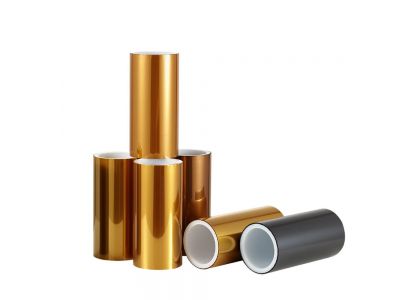
When it comes to selecting the right adhesive materials for your projects, it is essential to understand the characteristics of the tape you choose. Polyimide tape, commonly known as Kapton tape or Pi tape, has earned its reputation as a premium solution for various applications due to its remarkable properties, particularly in high-temperature environments. However, one common question arises among users: Is polyimide tape easy to tear or peel off? As a professional polyimide tape manufacturer, we aim to shed light on this topic and help you make informed decisions about your adhesive needs.
Before diving into its ease of tearing and peeling, let's first discuss what polyimide tape is. Polyimide tape is a kind of high-performance tape made from polyimide film, which offers excellent thermal stability, chemical resistance, and electrical insulation. It is often used in applications that involve extreme temperatures, making it an essential component in sectors such as electronics, aerospace, automotive, and 3D printing.
Unlike regular adhesive tapes, which may degrade under heat, polyimide tape can withstand temperatures up to 500°F (260°C). This is one of the reasons why it is sometimes referred to as high heat adhesive tape. Its impressive attributes also include a low thermal conductivity, making it ideal for both insulation and protection of sensitive components.
Polyimide tape comes in various formulations depending on the manufacturer. The thickness of the film and the type of adhesive used can influence how easy it is to tear or peel off. Typical polyimide tape provides a strong bond while remaining thin and flexible, which contributes to its functionality.
Polyimide tapes typically have a strong adhesive to ensure that they stay in place even under thermal stress. However, this strong bond also raises the question of how easy it is to remove the tape once it has been applied. In general, tapes designed for high-temperature applications, including heat resistant double sided tape, possess bond strengths tailored to their specific requirements.
Tearability
Polyimide tape can be tricky to tear by hand due to its robust structure; however, it can be cut neatly with scissors or a utility knife. This characteristic ensures a clean cut during application and removal.
Peelability
When it comes to peeling off polyimide tape, it depends on several factors, including the duration of application, temperature conditions, and the substrate it was applied to. Generally, polyimide tape can be peeled off quite efficiently when removed within a reasonable timeframe after application. If left for an extended period, particularly on certain surfaces, the adhesive may bond more permanently, making removal a bit more challenging.
The nature of the substrate where the polyimide tape is applied plays a crucial role in determining how easily it can be peeled off. For instance, if the tape is applied to a smooth, non-porous surface, it tends to release more easily compared to porous surfaces where the adhesive might penetrate.
Temperature can also influence the bond strength of the tape. In high-temperature environments, the adhesive may soften, allowing for easier peeling. Conversely, if used in excessively cold conditions, the adhesive may become brittle, leading to a more challenging removal process. It's crucial to keep these factors in mind, especially for applications involving high heat silicone tape, which operates under different conditions compared to polyimide tape.
As mentioned earlier, the longer the tape is left on the surface, the more challenging it may be to remove. This is particularly significant in environments where tape might be exposed to heat for extended periods. Though polyimide tape is designed for durability, it’s advisable to remove it in a timely manner to preserve both the tape's integrity and the substrate's condition.
If you aim to use polyimide tape in your project but are concerned about the difficulty of removal, here are some strategies to make the process smoother:
Try not to leave the tape on surfaces for longer than necessary. If you anticipate needing to remove it, aim to keep the application time minimal. This reduces the risk of the adhesive bonding too strongly.
Ensure that the surface where you’ll apply the tape is clean, dry, and free from oils or dust. This can prevent unintended adhesion issues and make it easier to peel off the tape when the time comes.
When removing polyimide tape, do so at a 45-degree angle, and pull it back slowly and steadily. Rushing through the removal can lead to tearing, affecting the integrity of both the tape and the surface.
In certain applications where the polyimide tape has been subjected to significant heat, gently warming the tape with a heat gun can soften the adhesive and aid in easier removal. However, be cautious not to overheat or damage the surface underneath.
In summary, polyimide tape, while designed for strong bonding capabilities, does possess certain characteristics that make it manageable for tearing and peeling. As a polyimide tape manufacturer, we strive to deliver not only high heat tape solutions but also the knowledge our customers need to make the right choices.
Understanding the nuances of polyimide tape and its adhesive properties can empower you to use this premium product effectively without undue concern about tearing or peeling. By considering the influences of surface type, temperature, and application time, you can ensure smooth application and removal processes.
Whether you are using high heat silicone tape, high heat adhesive tape, or traditional Pi tape, having the right information at your disposal will help you achieve the best results in your projects. Our dedication as a polyimide tape manufacturer is to provide quality materials that perform reliably under various conditions, allowing you to focus on what you do best.
If you have questions or need assistance in choosing the right polyimide tape for your specific applications, feel free to reach out. Your success is our priority, and we’re here to help you every step of the way.